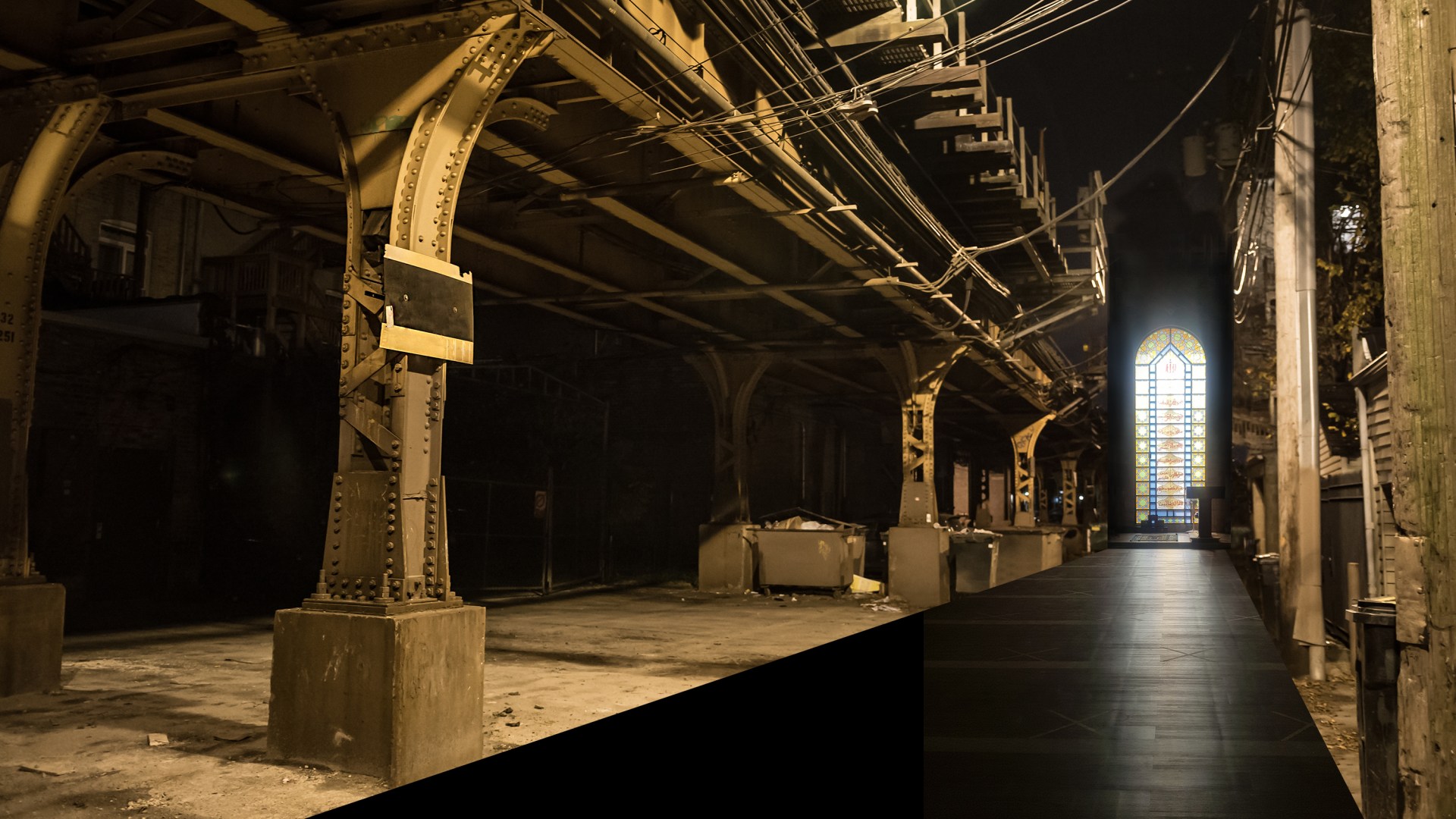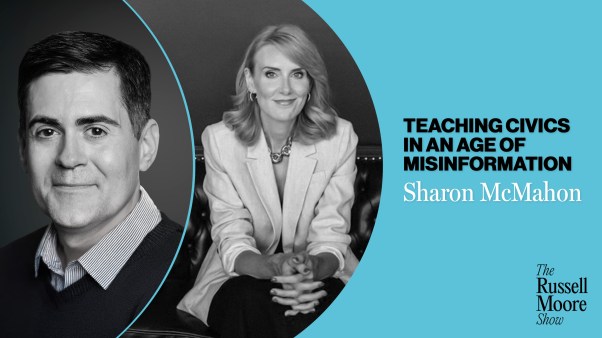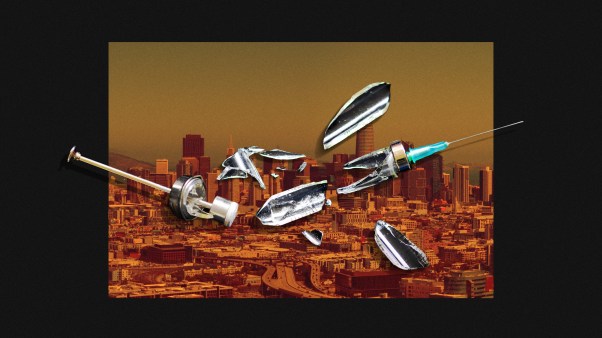My sophomore year of high school, I met a girl at a party. We talked on the phone for a few weeks before finally setting a date to meet up again. She lived in the Lincoln Park projects in Huntsville, Alabama. I relied on her directions when I drove to pick her up, but I couldn’t find her house. Before giving up, I decided to get out and walk, in case she spotted me.
How Far to the Promised Land: One Black Family's Story of Hope and Survival in the American South
Convergent Books
240 pages
That was a mistake. The locals noticed my car circling their block, and a group of young men came over. One of them asked, “Who are you?” His tone invited confrontation: You have stepped into my territory. Why are you here?
Looking around at the plastic bags blowing in the wind, clothes drying on flimsy lines, weeds amid patches of dirt, I could not see anything worth fighting over. But behind the interrogator stood three or four more young men, one with a gun. The weapon changed the stakes of the conversation. It was a question of life or death.
A rush of adrenaline began in my chest. I couldn’t control my rapid heart rate, but I could control my expression, so I adopted a calm exterior.
I had been in this situation before and knew I would have to navigate it so they didn’t feel trapped. I had to be strong but not threatening, certain but not disrespectful.
Who are you? The situation called for a simple statement of my allegiances: I am from Johnson High, and where I live is not your concern. But maybe because there was a gun involved, the question turned existential. I thought, Who am I, really? A boy grown into his adult body, now capable of wielding the same violence I’d witnessed from my father? A kid determined to be the opposite of that man? My mother’s hope?
At 16, I was a mix of competing visions and possibilities, with nothing to tie them together. What came next surprised even me.
“I am a Christian,” I responded.
If breath and sound could be chased down, I would have run after my words and dragged them back inside my mouth. But it was too late. I had spoken.
The boys were shocked. I could see it on their faces. They’d wanted me to say I wasn’t from there so they could be justified in resorting to violence. But to hear they were in the presence of a church kid must have thrown them off-balance. In response, they laughed and walked away.
My friends and I used to say, If you scared, go to church—meaning faith was for the weak and the cowardly who found street life too much for them. But it wasn’t fear of a violent outcome that had motivated my confession. I’d had a moment of God-given clarity.
As much as any statement of belief, these moments reveal the role that God plays in our lives. My mom heard God in a hospital room on the way to surgery. Aunt Clarice turned to God when her T-cell counts dropped low. But I did not hear the voice of God in that street exchange. It was more like God erupted out of me from some hidden place I didn’t know existed. For good or ill, I knew that my life was in some sense bound up with my Creator.
Two years later, I met with my pastor, Oscar Montgomery, to tell him I’d been called to preach. When I walked into his office, I found him sitting at a large oak desk covered with books, papers, and an open King James Bible.
After I sat down, the words came tumbling out. I told him I knew about the blood and forgiveness central to Christianity, but I also felt called to talk about what came after—with God as the pillar of fire, leading believers through the desert.
My ministry would be for people searching for hope among the rubble. I aimed to appeal to young Black boys and girls considering the same options given to me and carrying traumas like the ones I’d experienced. Many of them had heard and rejected the church’s offer. I wanted to ask them to reconsider that rejection.
My pastor did not seem surprised, recalling how I came from a family of Black preachers. The McCaulleys and Bones tended toward binaries. We chose the church or the streets.
“If I were you, I would try and talk God out of it,” he said with a laugh. “But I know that you won’t. You have always been a determined kid. I’ve watched you struggle with purpose most of your life. I trust that you’ve finally found it.”
He explained that, in three months, I would have to give a trial sermon.
“Make sure that you mention the birth, death, Resurrection, and return of Jesus,” he said. “Whatever else you get wrong, get Jesus right.”
A few months later, I ascended into the pulpit of Union Hill Primitive Baptist Church with a six-page sermon, a King James Bible, and a handkerchief, in case I worked up a sweat. But it turned out I was not that type of preacher.
As my sermon wore on, I looked at the audience and saw them waiting for the shouted lines. Jaws dropped open to shout Amen, then closed again. People rose from their seats to clap, then thought better of it.
I didn’t have the pauses for the Amens and Yes, Lords. Despite my extensive preparation, I was still an 18-year-old kid trying to wrestle the idea of God into words, my sermon filled more with questions than applause lines.
I asked myself: Is this what God requires of me, this slow death in front of friends and family?
My grand embarrassment of a sermon occurred on New Year’s Eve. In the Black church, we have a service called “Watch Night,” which recalls December 31, 1862, when the enslaved waited for the Emancipation Proclamation to go into effect on New Year’s Day, 1863.
In Huntsville, the congregations of several churches gather for a joint service of preaching and music that begins around 9 p.m. and ends around midnight.
As my time came to preach, I prayed as fervently as my teenage heart would allow that God would make me into a proper Black preacher. But five minutes in, my delivery was the same as it had always been. I couldn’t quite capture the imagination of the people I loved, and they didn’t understand me.
It took years for me to realize that I was not a Black preacher in the mode of my grandfather or the generations of Black men and women who preceded him. Essays were forming, but I did not yet know their contents. Books were struggling to get out, but they were obscured from me. The pastors could not see it, and neither could I.
Over time, I came to understand that I had a calling of a different sort: to try to put into words and on paper the varied experiences of God in the souls of Black folks. My main arena would not be the boisterous and sacred pulpit of the Black church, but the quiet office. The church had shaped my imagination, and that imagination would carry me into the world of literature and the arts. There, I would try to describe the beauty and travail of Black life in the South.
This excerpt was adapted from How Far to the Promised Land by Esau McCaulley. Copyright © 2023 by Esau McCaulley. All rights reserved. No part of this excerpt may be reproduced or reprinted without permission in writing from the publisher.












